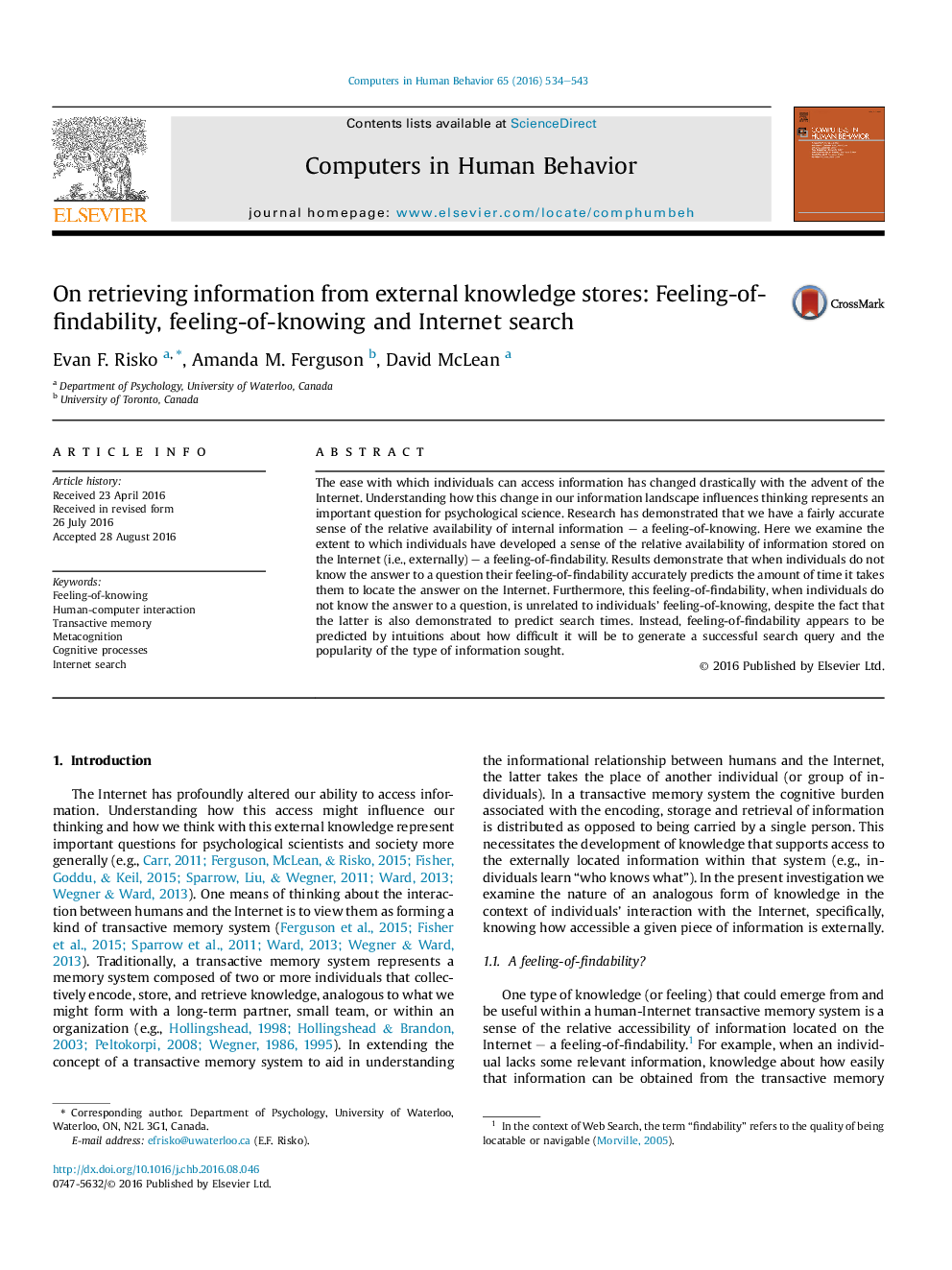| Article ID | Journal | Published Year | Pages | File Type |
|---|---|---|---|---|
| 4937820 | Computers in Human Behavior | 2016 | 10 Pages |
Abstract
The ease with which individuals can access information has changed drastically with the advent of the Internet. Understanding how this change in our information landscape influences thinking represents an important question for psychological science. Research has demonstrated that we have a fairly accurate sense of the relative availability of internal information - a feeling-of-knowing. Here we examine the extent to which individuals have developed a sense of the relative availability of information stored on the Internet (i.e., externally) - a feeling-of-findability. Results demonstrate that when individuals do not know the answer to a question their feeling-of-findability accurately predicts the amount of time it takes them to locate the answer on the Internet. Furthermore, this feeling-of-findability, when individuals do not know the answer to a question, is unrelated to individuals' feeling-of-knowing, despite the fact that the latter is also demonstrated to predict search times. Instead, feeling-of-findability appears to be predicted by intuitions about how difficult it will be to generate a successful search query and the popularity of the type of information sought.
Keywords
Related Topics
Physical Sciences and Engineering
Computer Science
Computer Science Applications
Authors
Evan F. Risko, Amanda M. Ferguson, David McLean,
